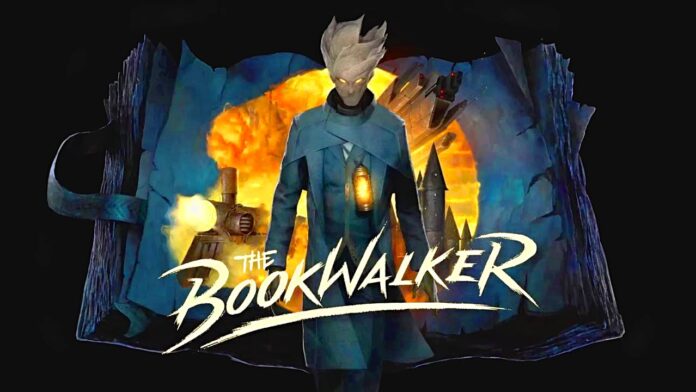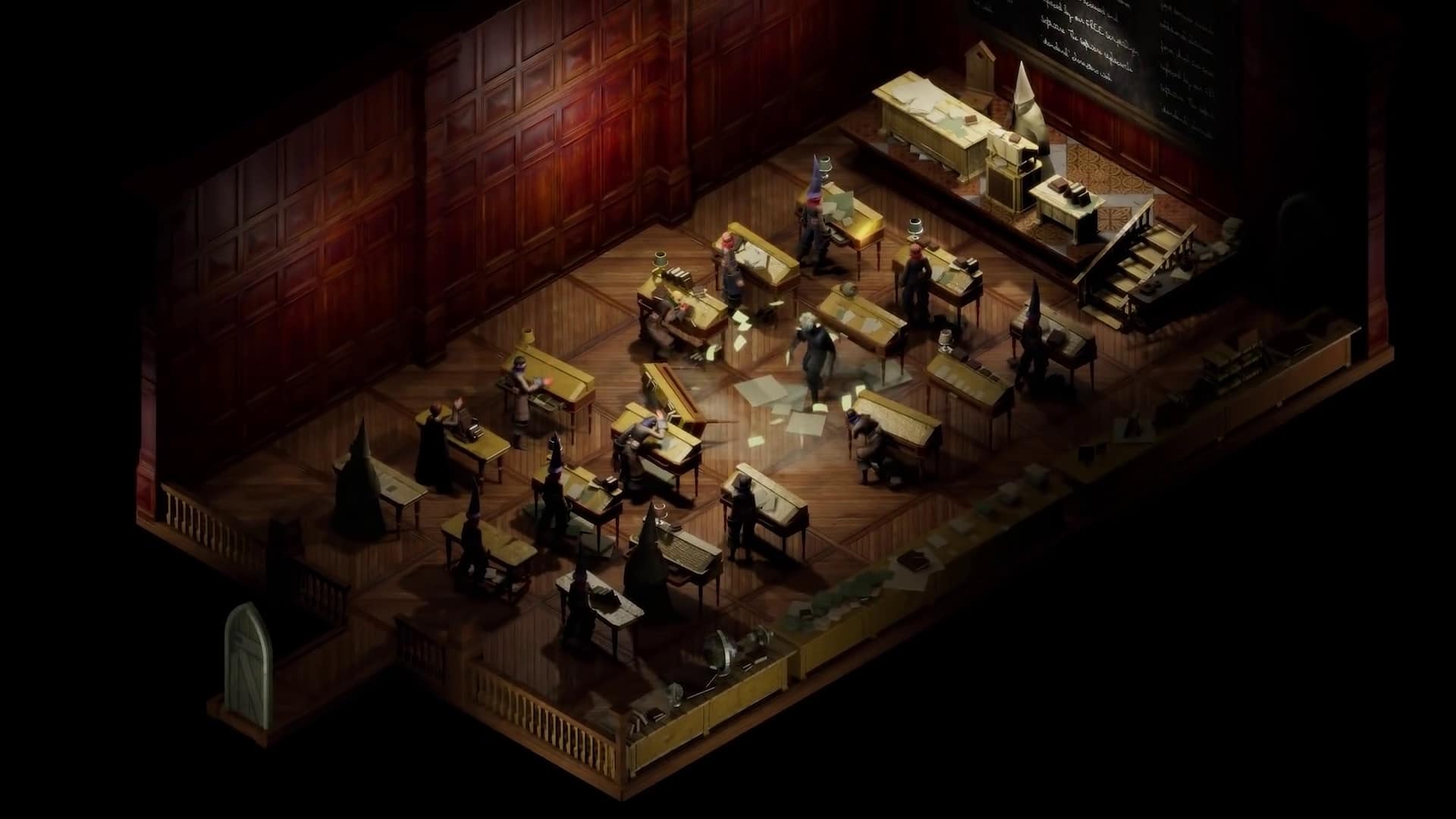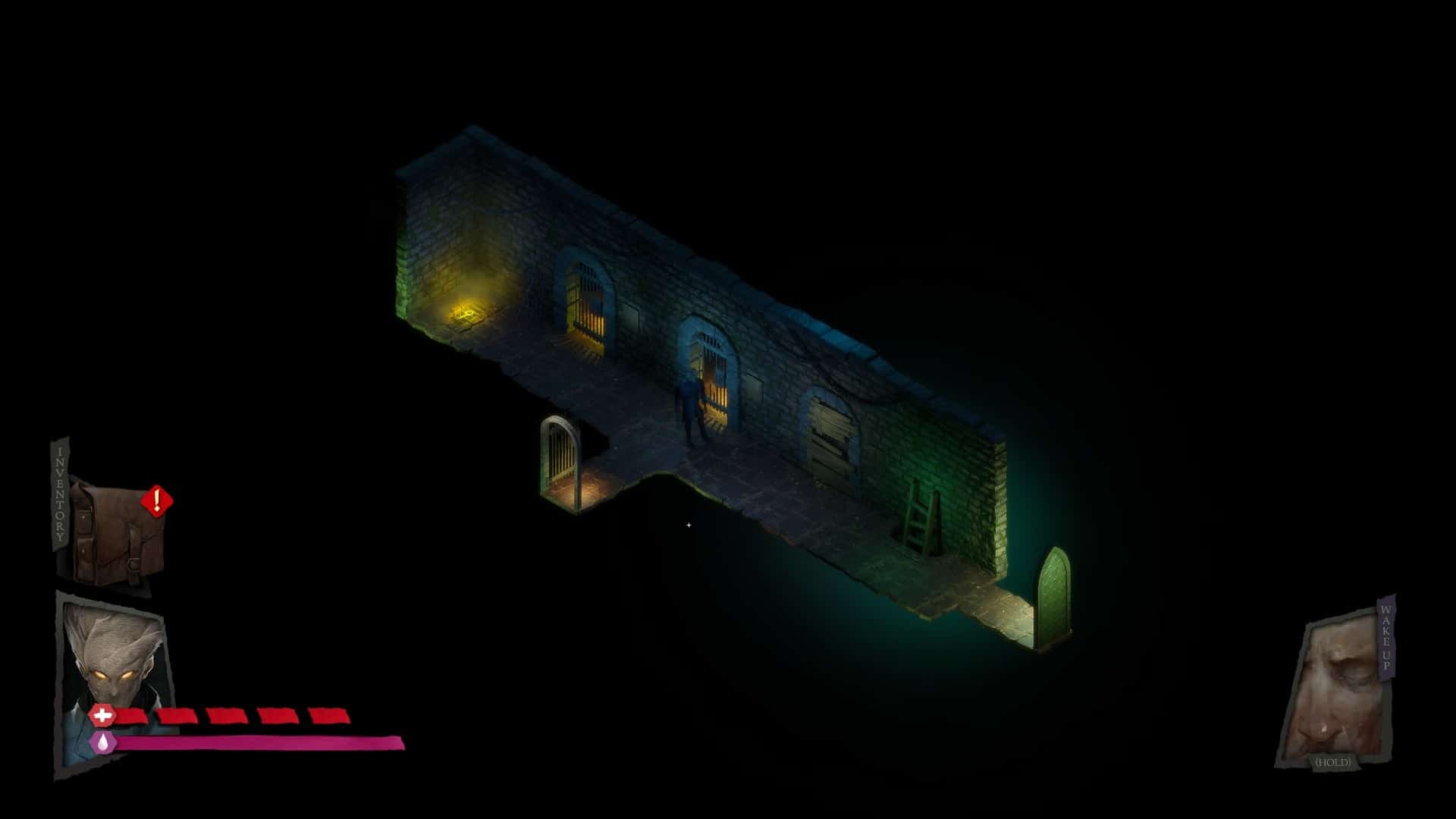The Bookwalker will be a small but fine adventure with a fascinating idea. Why the Steam demo is worth a look, you can find out here.
From time to time I feel the need to start a new game, or to start an old game from scratch. This is probably because I love the magic of the beginning, the incomparable feeling of diving into a new world that still seems vast and mysterious because of its unfamiliarity.
The Bookwalker promises to give me that feeling again and again. I get to travel to ever new places for relatively short missions, with a clear goal: I must steal powerful items that are often an important part of the world. As the title suggests, this is not about real worlds, but books. Our main character has the ability to enter the story of a book and take objects from there into his world.
The approximately two-hour, free (Steam-Demo) game is definitely worth a look for all exploration and story lovers and just the thing for a leisurely afternoon on the weekend.
If you like the idea of Bookwalker, then you should also take a look at Gamedec. Here, too, you’ll be transported to different worlds, but in a completely different way:
Blackmail makes thieves
At first everything starts quite unspectacularly: We come home to find that our flat has been cleared out and all the furniture confiscated. We are standing in our empty flat when suddenly the phone rings. During the conversation it becomes clear that our situation looks pretty bleak. We are forced to do various jobs – and to travel the book worlds as thieves.
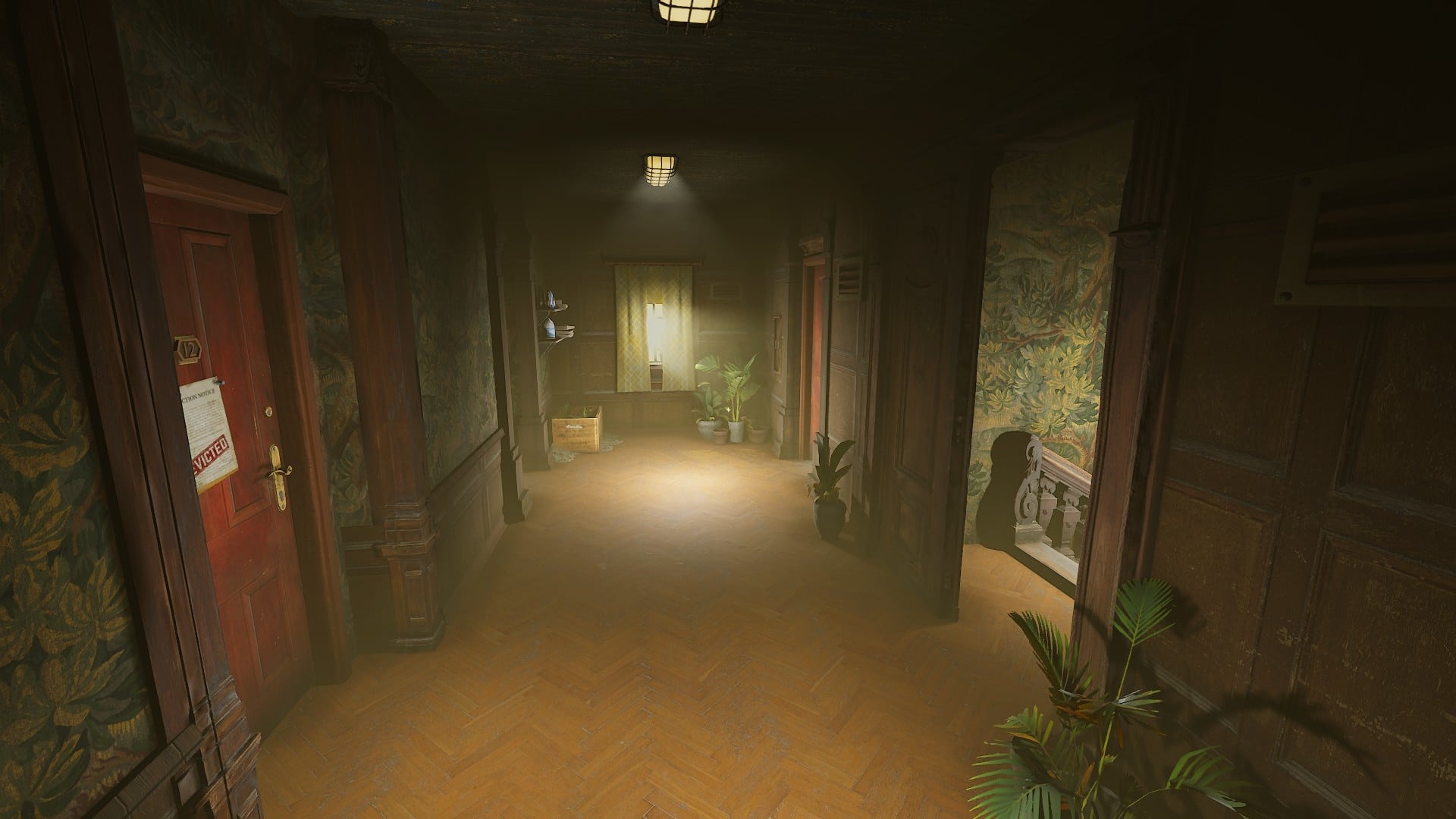
Soon enough, things start happening: a suitcase is left at our door by an unknown messenger, inside it a book, the description of the assignment and some information about the author. Conveniently, the suitcase also holds the right place for the desired object.
Now we can travel to the world of the first book – and also back at any time – because again and again we will also need tools that we make with resources found in our home.
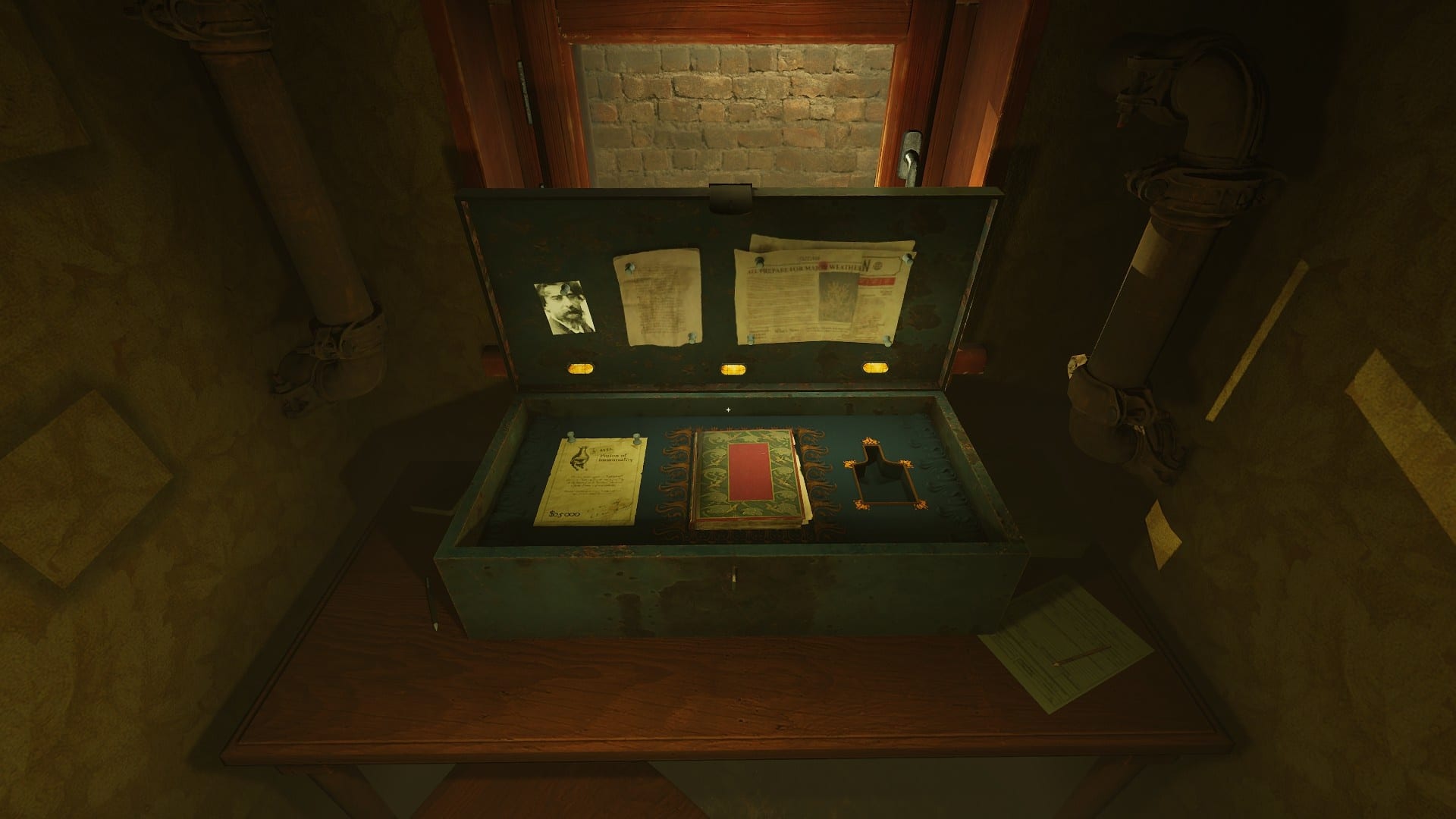
An interesting detail here is that in the real world we travel in first-person perspective, while in the books we switch to an isometric viewpoint. A nice design decision, as it underlines how different the two levels are.
More than just a story
The stories then go on a quest to find the desired object, which in the first chapter is an immortality potion. I don’t want to reveal much more here, because for me at least, the adventure is also about the story. In any case, you first end up in a dark dungeon, but there is more behind it.
In the finished game, we’ll probably be able to explore a lot of books, the demo talks about seven missions – that could correspond to the number of worlds. At least until the release you can play one story completely and start another one briefly, but that already makes you want more. The worlds also differ greatly from one another and rely on different genres: from post-apocalyptic desert cities to an abandoned spaceship and an eerie prison, everything is there.
While we experience the story of the books from a kind of observer’s perspective, after all we are unexpected and partly unwanted intruders in the book, the story of the main character who wants to help his brother also unfolds.
The latter also accompanies us through the book worlds and provides some entertaining dialogue in between. Sometimes we are allowed to make choices in conversations with characters, which in one case can also have nasty consequences.
Explore, puzzle, fight
Besides the story, Bookwalker’s focus is on exploring the world(s). We can talk to NPCs and read notes to learn more about the stories we have travelled to. We look for hidden keys as well as items, and wisely use our resources and items, such as lock picks, to advance to the next areas.
The economical use of the found objects is not unimportant. Because time and again we get into fights that we can’t avoid. We have to pay attention to our life bar and our ink supply. Because in order to use our abilities in the turn-based battles, we need ink, which we obtain from certain items and also from enemies.
The battles are not the highlight of Bookwalker, but the ink is a cool idea. With it, we can also rewrite certain areas of the book world and change them to our advantage. For example, a grid can suddenly become so soft that we can simply break it open with our hands.
Editor’s conclusion
Bookwalker belongs to a type of game for which I have only discovered my enthusiasm in the last few years: Small adventures that tell relatively short stories with a lot of attention to detail and often with the help of fascinating ideas. Especially in these times of huge open worlds and games that advertise hundreds of hours of playtime, a little variety can really do you good.
What excites me most about Bookwalker is the charming idea of being able to travel the world of books and the possibility of discovering many small but interesting worlds that I don’t have to sink dozens of hours into.
If the finished game simply continues what the demo started, then I definitely want to play it. I do have a few wishes though:
I hope the finished game can keep the promises made by the developers. Each world is supposed to feel completely different and have its own rules. If The Bookwalker can keep up this variety over its hopefully numerous chapters, I will hardly be able to detach myself from it.
I would then also like to see the dovetailing of the real world and books go a bit further. The crafting system via the workbench in the flat still feels a bit cumbersome and almost superfluous at the moment. But the trailer hints that the story of Bookwalker will also take place outside the books, which could be quite interesting.

